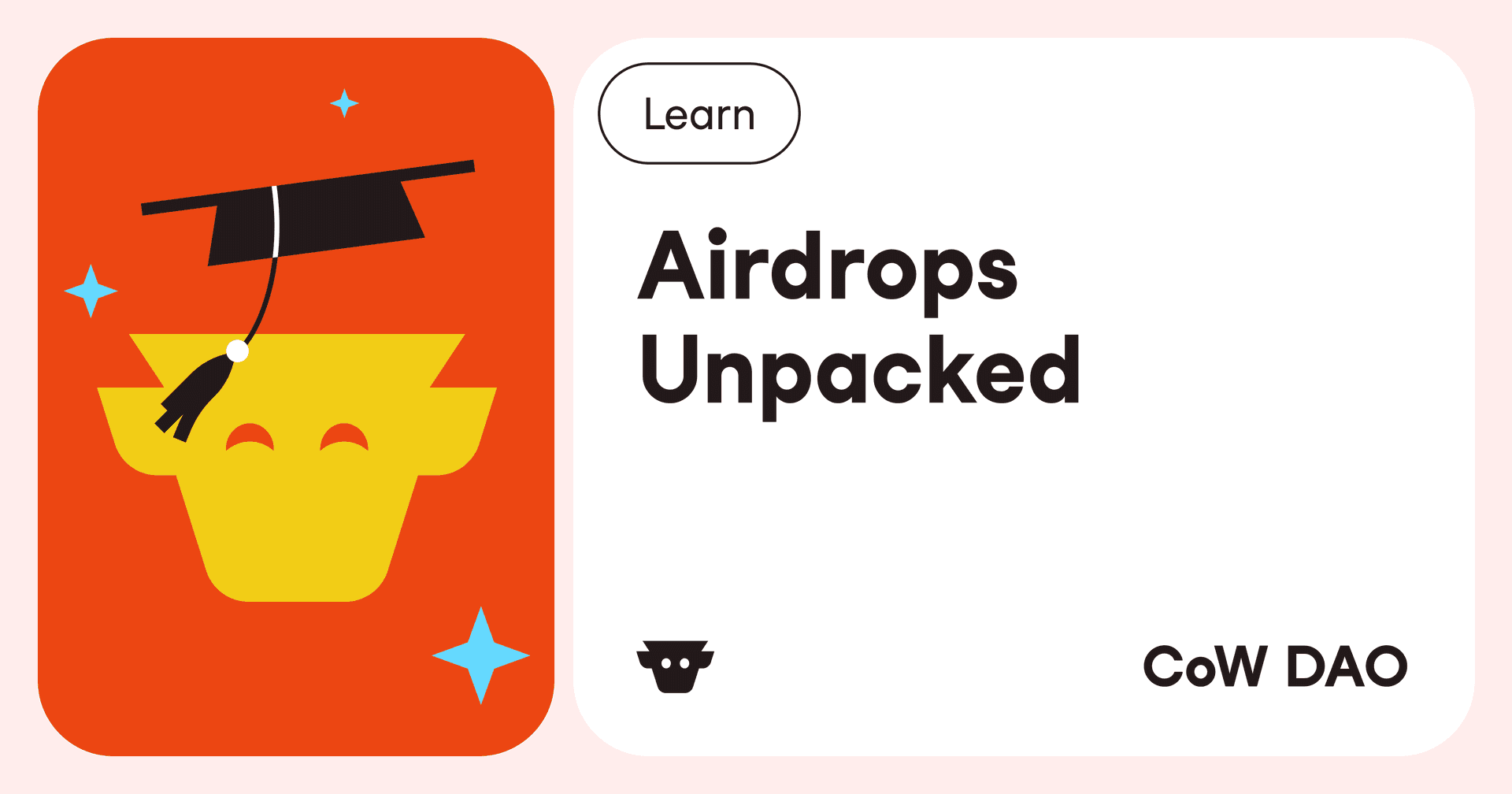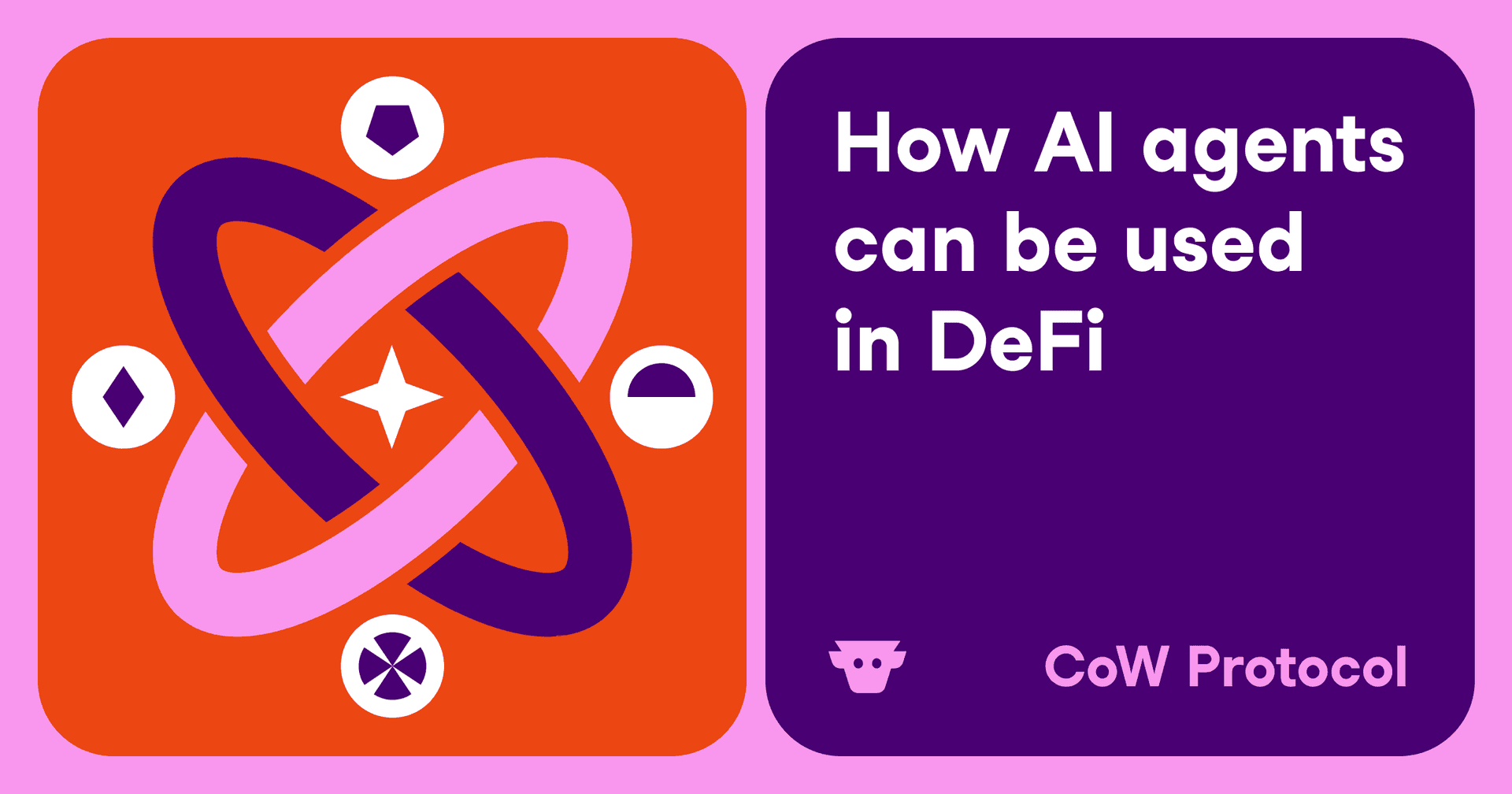CoW DAO's Evolution: Embracing Fair Combinatorial Batch Auctions for Enhanced Trading
CoW DAO is rolling out one of its most significant upgrades yet: a shift from its current single batch auction system to a smarter, fairer mechanism known as the Fair Combinatorial Batch Auction (FCBA).
That might sound technical (because it is), but here's the headline: this change is designed to make trading on CoW Protocol not only more efficient, faster, but more fair - for everyone.
Since its inception, CoW Protocol has stood out in the DEX world for doing things differently. Instead of processing trades one by one, it groups them together into "batches" and sends them to competitive solvers. These solvers race to find the most efficient way to settle all the orders at once. That's how CoW Protocol makes those "Coincidences of Wants" (CoWs) happen - when two people want opposite things at the same time and can skip the middleman entirely. No liquidity pools. No unnecessary fees.
Batch auctions come with big advantages. By clearing all trades for a token pair at the same price, they protect users from MEV attacks like front-running and sandwiching. They also help cut down on gas fees by bundling transactions, and users often end up with better prices than they would through traditional AMMs.
 But here's the catch: even though batch auctions are efficient overall, they haven't always been equally fair to all traders. Some participants get more of the benefit than others, and the protocol doesn't always have a clear view of how to spread value fairly.
But here's the catch: even though batch auctions are efficient overall, they haven't always been equally fair to all traders. Some participants get more of the benefit than others, and the protocol doesn't always have a clear view of how to spread value fairly.
One of the key limitations of the old mechanism is that it forces a single winner per auction, even when solvers submit entirely compatible solutions. This constraint often leads to inefficient outcomes - solutions that could have cleared more orders must be discarded simply because of this restriction.
As a result, some orders that could have been executed promptly get delayed to future auctions. The FCBA solves this by allowing multiple solvers to win different trades within the same auction. In this way, FCBA introduces flexibility: batching is allowed when it's optimal, but not forced when it isn't. The result? Faster and more efficient execution.
FCBAs explained

Fair Combinatorial Batch Auctions bring a new level of nuance to the table. Solvers can now submit bids for both individual trades and bundles of trades. But here's the twist: a bundled bid only gets accepted if it makes everyone involved better off than they would be on their own. No sneaky wins for one trader at the expense of another.
Think of it as a collaborative competition. Solvers are still trying to outdo each other, but now the rules make sure that any efficiencies they unlock are shared fairly. If a bundled bid can't beat the solo alternatives for every single trader in the batch? It gets rejected. Not only that, it improves throughput by 33%, meaning CoW Protocol gets fairer, but also faster.
This move isn't just about improving the system. It's about reinforcing CoW DAO's core values: transparency, fairness, and innovation that puts users first. It also makes safeguarding trades more efficient.
CoW Protocol already has a safeguard in place to ensure fair execution: the EBBO (External Best Bid and Offer) test. This mechanism ensures users receive prices that are competitive with other market venues.
However, it requires significant manual effort from the team and relies on internal assumptions about optimal routing. FCBA represents a powerful replacement for EBBO - one that draws on the solver's market intelligence rather than protocol-side assumptions, automating and enhancing fairness guarantees for all users.
With FCBAs, CoW Protocol also becomes even more resilient against MEV, even more gas-efficient, and a lot more equitable. It's a win for traders, a win for solvers, and a major step forward for what a DEX can be.
The future of batch auctions
This shift to FCBAs isn't just a technical upgrade - it's a philosophical one. In a space where speed and extraction often dominate, CoW DAO is choosing to prioritise fairness and collaboration without sacrificing performance. That matters. Because the future of DeFi isn't just about who settles fastest or shaves the most gas - it's about building systems that are resilient, transparent, and genuinely user-aligned.
And as more users enter the DEX landscape, the need for trustless infrastructure that actively protects users - rather than exploiting them - becomes critical. With FCBAs, CoW Protocol is drawing a line in the sand: you don't need to compromise fairness to achieve efficiency. You can have both - if the incentives are designed well.
So as this new mechanism rolls out, it's not just a new chapter for CoW - it's a signal to the entire ecosystem: fairness is not a feature. It's the future.
The future of fair trading? It starts here.
Want to dive deeper? Read the research paper by Andrea Canidio, Felix Henneke. And here’s the proposal brief over on snapshot.

